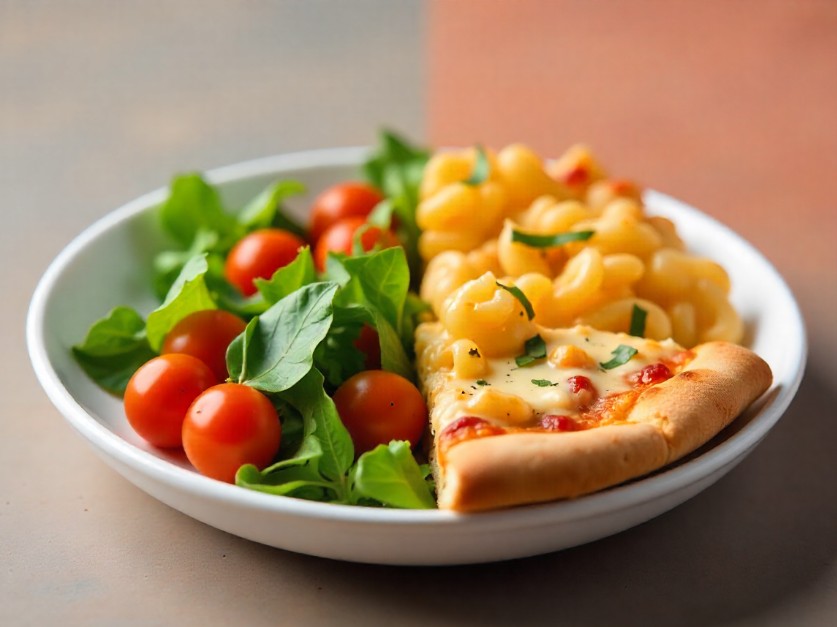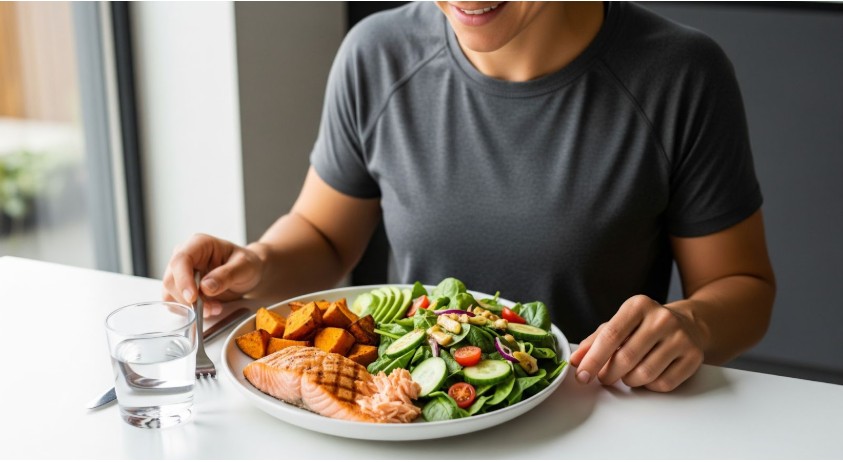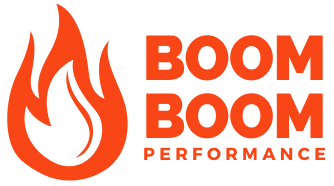
I remember the first time I jumped on the low-carb bandwagon. I thought it was the ultimate solution to get lean and lose those extra pounds. No bread, no pasta, just meat and veggies, right? It sounded simple and effective. And honestly, for a while, it did work.
But as time went on, I started to feel tired, sluggish, and kind of miserable. There were moments when I’d look longingly at a slice of pizza or a fresh loaf of bread and feel deprived. Eventually, I had to admit something: Low carb sucks for me.
Here’s the deal: while a low-carb diet works wonders for some people, it wasn’t sustainable for me. After years of trying different diets, I’ve come to realize that a one-size-fits-all approach isn’t the answer.
That’s why I started exploring different ways to stay lean and healthy, and I found some much better alternatives that suit my lifestyle—and my cravings.
So, if you’ve ever felt the same way about low-carb diets, or you’re tired of restrictive eating plans, this one’s for you. Let’s talk about why low-carb doesn’t always work and what you can do instead.
Why Do People Turn to Low-Carb Diets in the First Place?
Low-carb diets have been popularized by all the weight loss gurus and social media influencers. It promises fast fat loss, less bloat, and faster results than traditional diets.
The idea behind it is simple: reduce the carbs (especially sugars and refined carbs), and your body will burn fat for fuel instead of relying on carbs for energy.
For many people, cutting carbs works for a short time. They see quick results—weight dropping, less bloating, and fewer cravings. But here’s the catch: this isn’t a sustainable way to eat for the long term.
Sure, you might lose fat initially, but your body starts to hit a plateau or goes into starvation mode, making it harder to maintain weight loss.
It’s not that cutting carbs doesn’t work—it’s just not the best strategy for everyone. It’s like putting yourself in a box that limits what you can enjoy.
And let’s be honest: food should bring you joy, not make you feel miserable or deprived.

So, Why Does Low-Carb Suck?
Let me break it down—here’s why low-carb diets suck (at least for me):
1. It’s Hard to Stick With
Have you ever tried to eat low-carb long-term? I have, and it’s tough. When you cut out bread, pasta, rice, and even fruit, the list of things you can eat shrinks quickly. At first, it feels fine, but after a while, you start missing your favorite foods. It’s mentally draining to constantly think about what you can’t eat.
And for someone like me, who loves food and variety, the deprivation feels like a mental block. It’s not sustainable. You’ll eventually find yourself giving in to cravings, leading to binge eating and guilt.
2. It’s Not Always Sustainable
When you restrict carbs, you’re essentially putting your body in a short-term fat-burning mode. While it works temporarily, the long-term effects can be harmful. Your metabolism slows down, making it harder to burn fat over time. Plus, your workouts start to feel sluggish since carbs are your body’s preferred source of energy. That means your performance and progress will eventually suffer.
3. It’s Hard to Socialize
If you’re constantly avoiding carbs when out with friends or family, it can become socially isolating. Dinner at a restaurant? Sorry, I can’t have that pasta. Pizza night? Can’t do it. Food is a huge part of socializing and enjoying life. I’ve found that low-carb diets can make social events feel like an obstacle course. Eventually, it starts to feel like more of a chore than a lifestyle.
4. Carbs Are Essential for Energy and Performance
Carbs fuel your body. Period. If you’re an athlete, bodybuilder, or even just someone who enjoys working out, carbs are essential for performance. Without enough carbs, you can feel sluggish and drained. It becomes harder to perform at your best, and ultimately, your workouts suffer. Carbs help replenish glycogen stores in your muscles, giving you the energy to lift, run, and move better.
What Are the Better Alternatives to Low-Carb?

Now that we’ve established that low-carb might not be for everyone (especially if you’re like me), let’s talk about what works.
1. Intermittent Fasting – Eating When It Works for You
Intermittent fasting (IF) is a game-changer for fat loss without restriction. Instead of focusing on what to eat, it’s about when you eat. By limiting your eating window, you can create a natural calorie deficit. You’re still free to enjoy all your favorite foods—whether it’s carbs, fats, or protein—without being overly restrictive.
I’ve found IF to be a great way to eat without obsessing over every meal. It’s simple, effective, and you don’t have to limit any food groups. Whether you go with the 16:8 method (16 hours fasting, 8-hour eating window) or any other variation, it’s easy to integrate into your lifestyle.
2. Carb Cycling – Strategic Carb Use
Instead of cutting carbs entirely, why not cycle them? On training days, eat more carbs to fuel your workouts and promote recovery. On rest days, lower your carb intake to encourage fat burning. This approach gives you the best of both worlds—ample energy for intense workouts while still optimizing fat loss during your off days.
Carb cycling works great for maintaining energy without constantly cutting carbs, and it gives your body a break from the repetitive low-carb routine.
3. A Balanced Diet – Moderation is Key
There’s no need to banish entire food groups when you can enjoy everything in moderation. Focus on a balanced diet that includes whole foods from all groups: carbs, proteins, and healthy fats. A balanced approach will ensure you’re getting the nutrients your body needs while still making progress towards your goals.
How to Stay Lean Without the Low-Carb Struggle

The key to staying lean without the low-carb frustration is finding a sustainable approach. Here’s how I make it work:
- Consistency is Key – Whatever approach you choose, be consistent with it. Whether you’re intermittent fasting, carb cycling, or just eating balanced meals, consistency will get you results.
- Track Your Progress – It’s important to track your food intake and workouts. This will help you identify what’s working and what needs adjusting.
- Listen to Your Body – If you’re constantly feeling fatigued or deprived, it’s time to re-evaluate your approach. The goal is to feel good and perform well.
- Stay Active – Exercise, especially strength training, is a great complement to any diet. It helps build muscle, boosts metabolism, and promotes fat loss.
FAQ: Cheat Meals, Refeeds, and Diet Breaks
1. What’s the difference between a cheat meal and a refeed?
A cheat meal is typically a one-time indulgence, while a refeed is a more structured increase in carbs to replenish glycogen stores and boost metabolism. Cheat meals are more about mental breaks, and refeeds are about nutritional strategy.
2. Can I maintain a balanced diet while doing intermittent fasting?
Yes! Intermittent fasting doesn’t require you to cut out any food groups. You can still eat a balanced diet during your eating window, including carbs, fats, and proteins. It’s all about timing.
3. How does carb cycling help with fat loss?
Carb cycling helps by using higher carb intake on training days to fuel performance and recovery, while lower carb intake on rest days promotes fat burning. It’s an effective way to keep energy levels up while still burning fat.
4. Is a low-carb diet the best way to lose fat?
Not necessarily. While low-carb diets can be effective for some, it’s not the best approach for everyone. Alternatives like intermittent fasting, carb cycling, or a balanced diet can also help you achieve fat loss without the restrictions of a low-carb diet.
No More Low-Carb Drama: Find What Works for You!
Let’s face it—low-carb sucks for some of us, and that’s okay. The real key is finding a strategy that works with your body, your lifestyle, and your goals. Whether it’s intermittent fasting, carb cycling, or simply eating a balanced diet, the most important thing is consistency and finding something sustainable.
Remember, dieting doesn’t have to be restrictive. With the right approach, you can eat what you love, stay lean, and feel energized. It’s about finding balance, not deprivation. You’ve got this!


